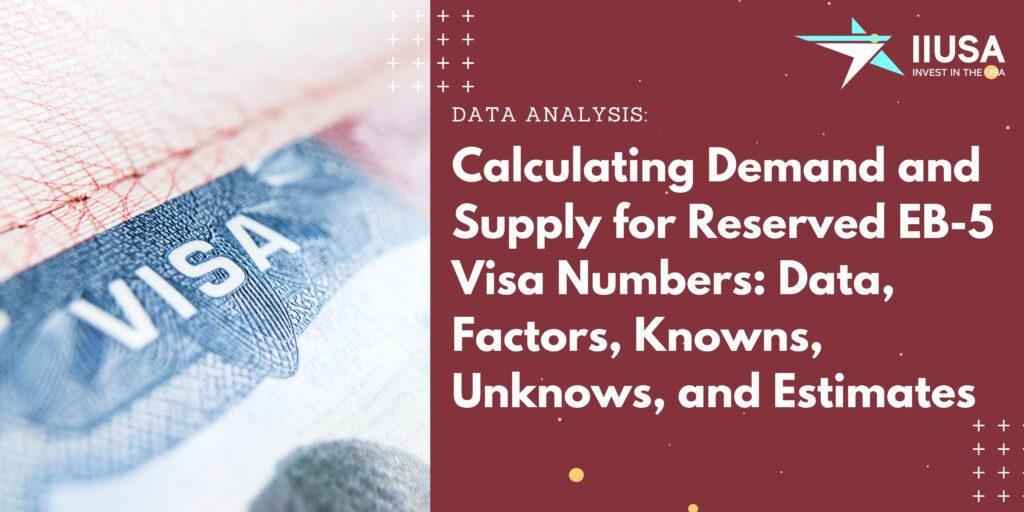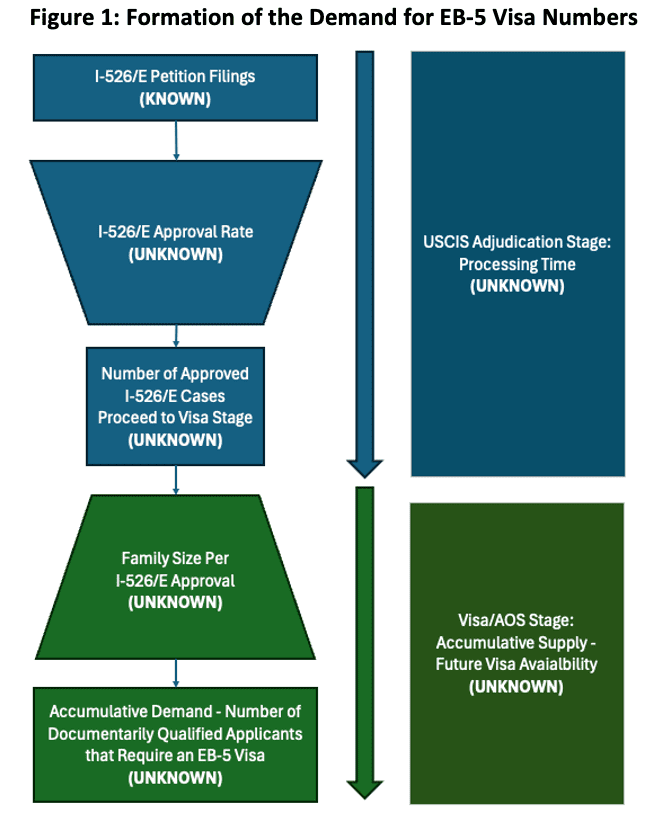Last week, IIUSA released a data analysis on the demand and supply for reserved EB-5 visa numbers. The report outlines major factors that affect the calculation of the EB-5 visa waitlist for the rural area and the high unemployment area (urban TEA) categories. In particular, the analysis presents the latest available data and discusses how estimates on visa demand and supply could vary widely given the unknown data points.
Since the enactment of the EB-5 Reform and Integrity Act of 2022 (RIA), demand for EB-5 has increased significantly thanks to the new reserved visas that provides an opportunity for new investors to avoid the pre-RIA visa backlog. As the demand continues to grow, the biggest questions are whether the supply of reserved visas is sufficient and if there will be a cut-off date for the reserved categories in the near future.
With the data on post-RIA I-526 and I-526E petitions on file becoming available, we can now start estimating the demand for reserved EB-5 visa numbers. However, as the chart below illustrates, calculation of the current EB-5 waitlist is a complicated endeavor requiring many data points, most of which remain unknown and must rely on assumptions. As our analysis shows, different assumptions would lead to a very different estimate.
In addition, the report also examined the supply of reserved EB-5 visas and discussed the minimum and maximum accumulative visa availability for the rural area and urban TEA categories in FY2024 and FY2025. However, whether the visa supply can be used to clear out the current demand on file depends on various factors, including 1) USCIS processing time, 2) adjudication volume, and 3) how quickly documentarily qualified applicants can react and secure their visa numbers — all of which are critical elements but also lack data.
Learn more about the in-depth analysis of each factor and our estimated range on the demand and supply for reserved EB-5 visas in the full report. For questions and comments, contact IIUSA at research@iiusa.org.
READ THE FULL REPORT HERE










